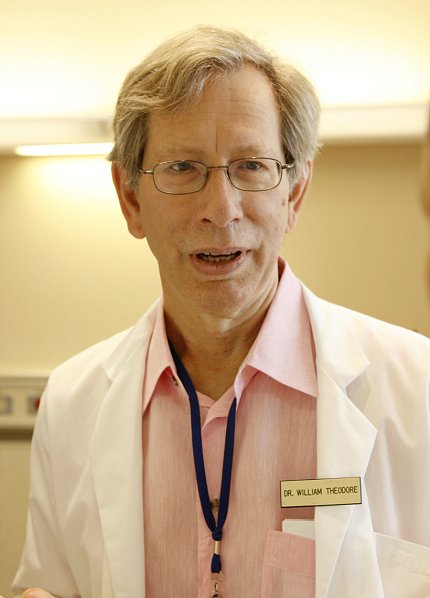NINDS’s Theodore Installed as Epilepsy Society President

Dr. William H. Theodore, senior investigator and chief of the childhood epilepsy section at the National Institute of Neurological Disorders and Stroke, recently began his term as president of the American Epilepsy Society (AES).
A medical and scientific society of 4,700 members, AES is dedicated to advancing research and education for preventing, treating and curing epilepsy.
Theodore received a bachelor’s degree from Harvard College and attended medical school at Columbia University College of Physicians and Surgeons. Board-certified in internal medicine, neurology and epilepsy medicine since 1979, he has conducted clinical and translational research and provided care to patients with epilepsy at the Clinical Center and National Naval Medical Center.
He also serves as professor of neurology at the F. Edward Hebert School of Medicine, Uniformed Services University of the Health Sciences.
He has vast experience in patients with drug-resistant epilepsy, including in a series of experimental drug trials, fMRI for language and memory mapping, and neurotransmitter receptor imaging. More recently, he has worked on PET imaging of inflammation and viral etiologies of epilepsy. Recognizing his pioneering research contributions, AES awarded him its Clinical Research Award.
In addition, Theodore has trained more than 50 fellows and has served on the board of directors of the Foundation for Advanced Education in the Sciences.
“Dr. Theodore’s service in the national and international epilepsy communities uniquely give him a universal understanding of the progress made, but necessity of continued research and education to achieve the goal of improving outcomes for persons with epilepsy,” AES noted, in a statement announcing the installation.
Theodore has published more than 250 peer-reviewed papers and several books and has led and participated in practice parameters and advisory panels.
Founded in 1936, AES is an inclusive global forum where professionals from academia, private practice, not-for-profit, government and industry can learn, share and grow to eradicate epilepsy and its consequences.
